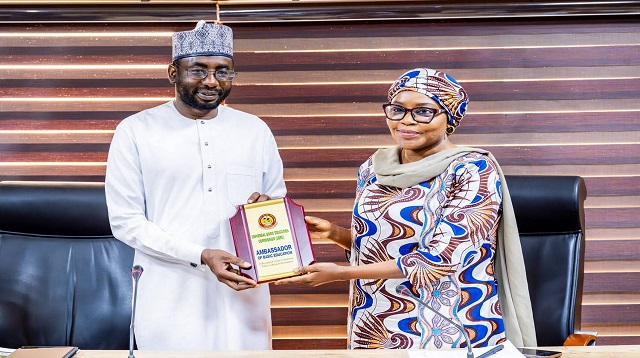E-Business
Unveiling 2023 Holiday Shopping Trends in Nigeria: A Comprehensive Overview

By Reuben Kalu
The holiday season is not only a time for celebration and festivities but also a peak period for shopping, both online and offline.

Reuben Kalu, Marketing and Business Development Expert
In Nigeria, the dynamics of holiday shopping have evolved over the years, influenced by changing consumer behavior, technological advancements, and economic factors.
As we delve into the trends that will shape the 2023 holiday shopping season in Nigeria, it becomes evident that the landscape is evolving, presenting new opportunities and challenges for both retailers and consumers.
- Rise of E-Commerce:
The past few years have witnessed a significant surge in online shopping, and this trend is expected to continue in 2023.
With the proliferation of smartphones and improved internet connectivity, more Nigerians are opting for the convenience of shopping from the comfort of their homes. E-commerce platforms are likely to experience a spike in traffic as consumers seek a hassle-free shopping experience during the holiday season.
- Increased Mobile Shopping:
Mobile commerce is set to play a pivotal role in holiday shopping trends. As smartphone penetration continues to grow, consumers are increasingly turning to mobile apps and websites to browse and make purchases.
Retailers are responding by optimizing their online platforms for mobile users, offering seamless navigation and user-friendly interfaces.
- Influencer Marketing in E-Commerce:
Influencer marketing has become a powerful tool for brands to connect with their target audience. In 2023, we can expect to see an upsurge in influencer collaborations, especially in the context of holiday shopping. Social media influencers are likely to partner with e-commerce brands to create engaging content, share reviews, and promote exclusive deals, driving consumer interest and trust.
- Personalized Shopping Experiences:
Consumers in Nigeria are becoming increasingly discerning, seeking personalized shopping experiences that cater to their individual preferences.
In 2023, retailers are expected to leverage technology to gather and analyze customer data, providing tailored recommendations and personalized promotions.
This trend not only enhances customer satisfaction but also contributes to increased sales and brand loyalty.
- AI-Powered Recommendations:
Artificial Intelligence (AI) is set to revolutionize the holiday shopping experience in Nigeria.
AI algorithms will analyze customer behavior, past purchases, and preferences to generate accurate product recommendations.
This not only saves time for consumers but also enhances the likelihood of successful purchases, contributing to a more satisfying shopping journey.
- Virtual Try-Ons and Augmented Reality:
In the quest to bridge the gap between online and offline shopping experiences, retailers may incorporate virtual try-ons and augmented reality features.
This allows consumers to virtually ‘try on’ clothing, accessories, or even test home décor items before making a purchase. Such innovations enhance the overall shopping experience and reduce the uncertainty associated with online purchases.
III. Sustainable and Ethical Shopping:
As global awareness of environmental issues grows, consumers are increasingly making conscious choices in favor of sustainable and ethically produced goods.
This trend is expected to extend to holiday shopping in Nigeria, with consumers seeking eco-friendly products and supporting brands with transparent and ethical practices.
- Eco-Friendly Packaging:
Retailers are likely to adopt eco-friendly packaging options as part of their commitment to sustainability.
From recycled materials to biodegradable packaging, the emphasis on reducing environmental impact will be a key consideration for both online and brick-and-mortar stores.
- Support for Local Artisans and Businesses:
In 2023, there may be a surge in support for local artisans and businesses.
Consumers are likely to appreciate and seek out products that are handmade or produced locally, contributing to the growth of small businesses and fostering a sense of community.
- Payment Innovations and Financial Inclusion:
The evolution of payment methods has been a significant driver in shaping the shopping landscape, especially in emerging markets like Nigeria.
In 2023, we can expect continued innovations in payment options, making it easier for consumers to make purchases, even in regions with limited access to traditional banking services.
- Rise of Digital Wallets:
Digital wallets are gaining popularity in Nigeria, offering a convenient and secure way for consumers to make payments.
As the use of digital wallets becomes more widespread, retailers are likely to integrate multiple payment options to accommodate diverse consumer preferences.
- Installment Payment Plans:
To enhance affordability and cater to a broader consumer base, retailers may introduce installment payment plans.
This allows shoppers to spread the cost of their purchases over several months, making high-value items more accessible and promoting financial inclusion.
- Cybersecurity Concerns:
While the digitalization of holiday shopping brings numerous benefits, it also raises concerns about cybersecurity.
With the increase in online transactions, there is a growing need for robust cybersecurity measures to protect consumers’ sensitive information and ensure a secure shopping environment.
- Secure Payment Gateways:
E-commerce platforms will prioritize the implementation of secure payment gateways to safeguard customer data.
Encryption technologies and two-factor authentication will be integral to ensuring the confidentiality of online transactions.
- Consumer Education on Cybersecurity:
Retailers may take proactive measures to educate consumers about online security practices.
This includes tips on creating strong passwords, recognizing phishing attempts, and using secure networks for online transactions.
- Socially Driven Shopping:
The influence of social media on consumer behavior continues to grow, and this trend is expected to be amplified during the 2023 holiday season.
Social commerce, where consumers can make purchases directly through social media platforms, is likely to gain traction.
- Shoppable Social Media Posts:
Retailers may leverage shoppable posts on platforms like Instagram and Facebook, allowing users to explore and purchase products without leaving the app.
This seamless integration of social media and e-commerce enhances the overall shopping experience.
- User-Generated Content and Reviews:
User-generated content, including reviews and testimonials, will play a crucial role in shaping purchasing decisions.
Retailers may actively encourage customers to share their experiences, creating a sense of community and authenticity around their brand.
As we anticipate the 2023 holiday shopping season in Nigeria, it is evident that the landscape is evolving, driven by technological advancements, changing consumer preferences, and a growing emphasis on sustainability.
Retailers who embrace these trends and adapt their strategies accordingly are likely to thrive in this dynamic market.
From the rise of e-commerce and personalized shopping experiences to the emphasis on sustainability and socially driven shopping, the holiday season presents a myriad of opportunities for both consumers and businesses alike.
As we embark on this festive season, let us celebrate the spirit of giving and innovation that defines the holiday shopping trends in Nigeria.
Reuben Kalu is a Marketing and Business Development Expert
E-Business
AI Slows Down some Experienced Software Developers, Study Finds

Contrary to popular belief, using cutting-edge artificial intelligence tools slowed down experienced software developers when they were working in codebases familiar to them, rather than supercharging their work, a new study found.

AI research nonprofit METR conducted the in-depth study, on a group of seasoned developers earlier this year while they used Cursor, a popular AI coding assistant, to help them complete tasks in open-source projects they were familiar with.
Before the study, the open-source developers believed using AI would speed them up, estimating it would decrease task completion time by 24%. Even after completing the tasks with AI, the developers believed that they had decreased task times by 20%. But the study found that using AI did the opposite: it increased task completion time by 19%.
The study’s lead authors, Joel Becker and Nate Rush, said they were shocked by the results: prior to the study, Rush had written down that he expected “a 2x speed up, somewhat obviously.”
The findings challenge the belief that AI always makes expensive human engineers much more productive, a factor that has attracted substantial investment into companies selling AI products to aid software development.
AI is also expected to replace entry-level coding positions. Dario Amodei, CEO of Anthropic, recently told Axios that AI could wipe out half of all entry-level white collar jobs in the next one to five years.
Prior literature on productivity improvements has found significant gains: one study found using AI sped up coders by 56%, another study found developers were able to complete 26% more tasks in a given time.
But the new METR study shows that those gains don’t apply to all software development scenarios. In particular, this study showed that experienced developers intimately familiar with the quirks and requirements of large, established open source codebases experienced a slowdown.
Other studies often rely on software development benchmarks for AI, which sometimes misrepresent real-world tasks, the study’s authors said.
The slowdown stemmed from developers needing to spend time going over and correcting what the AI models suggested.
“When we watched the videos, we found that the AIs made some suggestions about their work, and the suggestions were often directionally correct, but not exactly what’s needed,” Becker said.
The authors cautioned that they do not expect the slowdown to apply in other scenarios, such as for junior engineers or engineers working in codebases they aren’t familiar with.
Still, the majority of the study’s participants, as well as the study’s authors, continue to use Cursor today.
The authors believe it is because AI makes the development experience easier, and in turn, more pleasant, akin to editing an essay instead of staring at a blank page.
“Developers have goals other than completing the task as soon as possible,” Becker said. “So they’re going with this less effortful route.”
E-Business
Firm Uncovers $500K Crypto Heist Through Malicious Packages

Kaspersky GReAT (Global Research and Analysis Team) experts have discovered open-source packages that download the Quasar backdoor and a stealer designed to exfiltrate cryptocurrency. The malicious packages are intended for the Cursor AI development environment, which is based on Visual Studio Code — a tool used for AI-assisted coding.

The malicious open-source packages are extensions hosted in the Open VSX repository that claim to provide support for the Solidity programming language. However, in practice, they download and execute malicious code on users’ devices.
During an incident response, a blockchain developer from Russia reached out to Kaspersky after installing one of these fake extensions on his computer, which allowed attackers to steal approximately $500,000 worth of crypto assets.
The threat actor behind these packages managed to deceive the developer by making the malicious package rank higher than the legitimate one. The attacker achieved this by artificially inflating the malicious package’s downloads count to 54,000.
After installation, the victim gained no actual functionality from the extension. Instead, malicious ScreenConnect software was installed on the computer, granting threat actors remote access to the infected device.
Using this access, they deployed the open-source Quasar backdoor along with a stealer that collects data from browsers, email clients, and crypto wallets. With these tools, the threat actors were able to obtain the developer’s wallet seed phrases and subsequently steal cryptocurrency from the accounts.
After the malicious extension downloaded by the developer was discovered and removed from the repository, the threat actor republished it and artificially inflated its installation count to a higher number – 2 million, compared to 61,000 for the legitimate package. The extension was removed from the platform following a request from Kaspersky.
“Spotting compromised open-source packages with the naked eye is becoming increasingly difficult. Threat actors are using increasingly creative tactics to deceive potential victims, even developers who have a strong understanding of cybersecurity risks — particularly those working in the blockchain development field.
As we expect adversaries to continue targeting developers, it is recommended that even experienced IT professionals deploy dedicated security solutions to safeguard sensitive data and prevent financial losses,” commented Georgy Kucherin, Security Researcher with Kaspersky’s Global Research and Analysis Team.
The threat actor behind the attack published not only malicious Solidity extensions but also another NPM package, solsafe, which also downloads ScreenConnect. A few months earlier, three additional malicious Visual Studio Code extensions were released — solaibot, among-eth, and blankebesxstnion — all of them have already been removed from the repository.
E-Business
NITDA Reaffirms Commitment to 95% Digital Literacy by 2030, as UBEC Pledges Collaboration

Kashifu Inuwa CCIE, the Director General of the National Information Technology Development Agency (NITDA), has reaffirmed the Federal Government’s unwavering commitment to achieving 95% digital literacy across Nigeria by the year 2030, with an ambitious milestone of 70% by 2027.

This disclosure was made in total alignment with the present administration’s priority areas of reforming the economy for sustained inclusive growth and accelerating diversification through industrialisation, digitisation, creative arts, manufacturing, and innovation.
Making this known during a collaborative meeting hosted by the Universal Basic Education Commission (UBEC), Inuwa highlighted the government’s strategic prioritisation of human capital development as central to its national transformation agenda.
“We started this journey in 2023 when President Bola Ahmed Tinubu came on board and he made it clear that economic diversification and inclusivity are part of the administration’s agenda,” he noted.
“And the president outlined this in 8 priority areas to achieve the vision, with priority number 7 specifically focused on accelerating industrialisation, digitisation, creative arts, manufacturing, and innovation,” he added.
Recognising the importance of digital fluency in achieving this agenda, he stated that NITDA is committed to investing in the digital empowerment of citizens through the development of the National Digital Literacy Framework (NDLF), a strategic blueprint aligned with international best practices.
He added that to tailor the framework to Nigeria’s specific needs, 6 core competency areas were incorporated to include device and software operations, information and data literacy, communication and collaboration, content creation, safety, and problem solving.
He explained that the framework would address all levels of digital fluency, from basic, intermediate to advanced levels, to make digital skills accessible to every Nigerian, from primary school pupils to working professionals.
According to Inuwa, despite data limitations, NITDA estimates that Nigeria’s digital literacy rate currently stands at 50%, up from 44% in 2021, based on extrapolations from the World Bank’s Better Life Report.
The NITDA DG disclosed that the agency has been working closely with the Nigerian Educational Research and Development Council (NERDC) in developing a curriculum for digital literacy, which can be infused into formal education. Stating that the visit is a continuation of NITDA’s ongoing engagements with key education stakeholders, including the Federal Ministry of Education, the National Universities Commission (NUC), and the Nigerian Educational Research and Development Council (NERDC), all aimed at advancing digital literacy across all levels of learning.
Inuwa also revealed ongoing collaborations with global platforms such as Coursera to train teachers using AI-powered lesson generation tools and provide scalable online training.
It is worth recalling that late last year, NITDA partnered with the Nasarawa State University in collaboration with CISCO in launching the Digital Learning for NSUK (DL4NSUK) initiative to enhance digital literacy in tertiary institutions, and equipping graduates with the skills needed to be digitally proficient and globally competitive.
While stressing that the entire process, from curriculum development to classroom delivery, would require a whole-of-government and whole-of-society approach, Inuwa said, “This is not a journey we can walk alone; we must bring everyone on board, education stakeholders, technology providers, state governments, and international partners.”
In response to the DG’s remarks, UBEC Executive Secretary, Hajiya Aisha Garba, confirmed that the Commission has officially received the digital literacy curriculum developed by NITDA and NERDC and has commenced internal review processes.
She acknowledged the curriculum as robust and forward-looking but stressed the need for simplification to suit early learners and teachers, citing challenges such as curriculum overload, limited teacher capacity, and inadequate infrastructure as key barriers to effective implementation.
She pledged that UBEC, in partnership with the State Universal Basic Education Board (SUBEB), will lead efforts to equip schools with computers and solar-powered infrastructure to support real learning.
“We’re committed to working with NITDA and NERDC to refine the curriculum, train teachers, and ensure effective delivery. Let us align the technical vision with grassroots realities to make a lasting impact,” she concluded.
To formalise the implementation of the meeting’s resolutions, a joint inter-agency committee was established to develop strategic plans that will ensure the effective rollout of the digital literacy initiative, to equip young Nigerians with the essential digital skills required to thrive in an increasingly dynamic and technology-driven global landscape.

 Broadcasting3 days ago
Broadcasting3 days agoEFCC Re-Arraigns Echefu, TStv CEO for Allegedly Defrauding Ex-Minister of N1Bn, $1.3m

 Telecom3 days ago
Telecom3 days ago4 Dead, 20 Others Injured as Fire Engulfs Cairo Data Centre

 General News3 days ago
General News3 days agoFG Declares Admissions outside CAPS Illegal

 General News3 days ago
General News3 days agoBRICS Leaders Seek Inclusive Access to AI

 News3 days ago
News3 days agoNigeria Loses over N200Bn from SSB Tax Annually – CAPPA

 E-Financial2 days ago
E-Financial2 days agoGOEs’ Remit Over ₦2tn to FG in 2024

 Telecom3 days ago
Telecom3 days agoSiBAN Applauds Interstellar’s Groundbreaking Role in Africa’s Blockchain Future

 Telecom3 days ago
Telecom3 days agoGlobalcom Thrills Subscribers with 3 New Digital Products



















